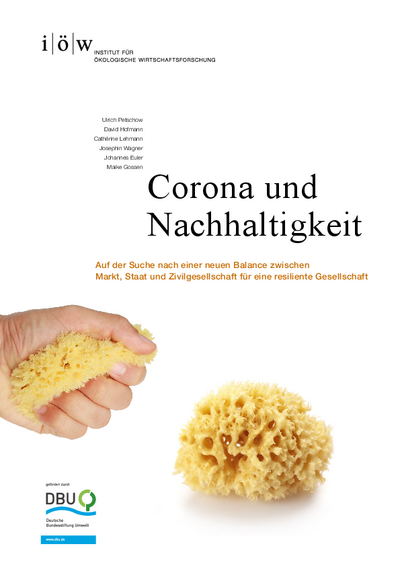Corona and Sustainability In search of a new balance between market, state and civil society for a resilient society
The Corona crisis has led to massive disruptions in the economy and society. Even if it is still unclear what specifically caused the outbreak - what is clear is that the loss of biodiversity and the crossing of planetary boundaries increases the likelihood of pandemics.
Like a burning glass, the pandemic has exposed and intensified existing undesirable developments that were already in place beforehand. Undesirable developments that can also be attributed to the processes of uncontrolled globalization: unequal distribution between North and South and within countries, highly problematic approach to nature and climate, or the development of highly fragile structures trimmed to efficiency, as can be shown with the example of broken supply chains. Their disruption resulted in an immense economic collapse. The brochure shows reasons using the example of chip and mask production.
It can also be assumed that (seemingly) unexpected events will increase in perspective, from extreme weather events in the context of climate change, cyber risks, possible black-outs but also surprises in transformation processes can accumulate in shocks. Accordingly, societies will increasingly deal with shocks without having knowledge what the corresponding triggers will be. A new way of dealing with risks, uncertainties and ignorance is therefore needed. Thus, while precautionary measures against specific shocks are necessary, they alone will not be sufficient. It will be important to make societal and economic systems resilient so that they can deliver their system services "no matter what". Cellular systems with subsidiary governance as a design guideline can significantly increase resilience.
This brochure provides insights into approaches for sustainable and resilient economies and lifestyles that correspond to this design model. These can be found in alternative economies such as community-supported agriculture, the foundational economy, the concept of the 15-minute city or in decentralized production methods such as 3D printing.



